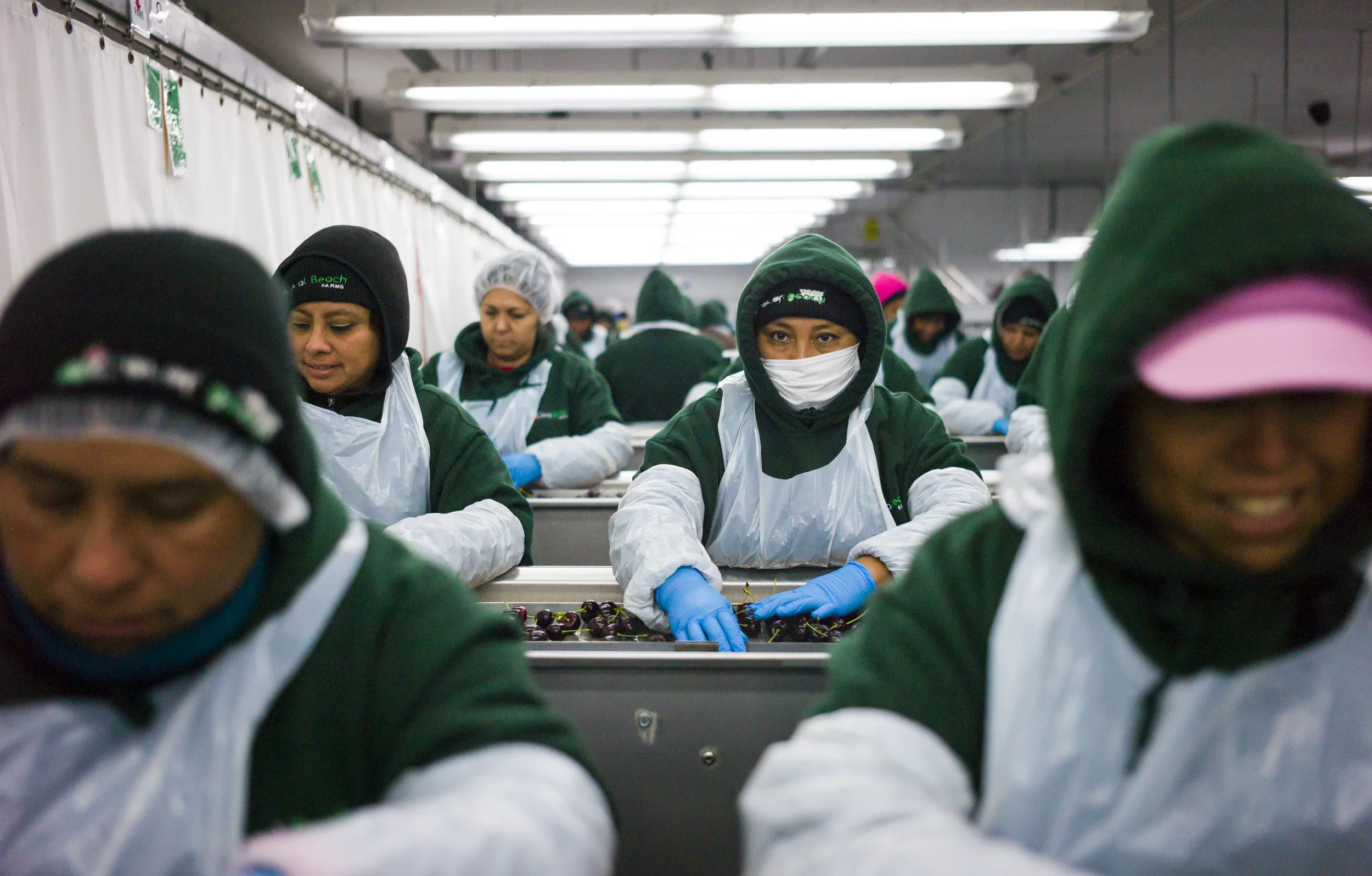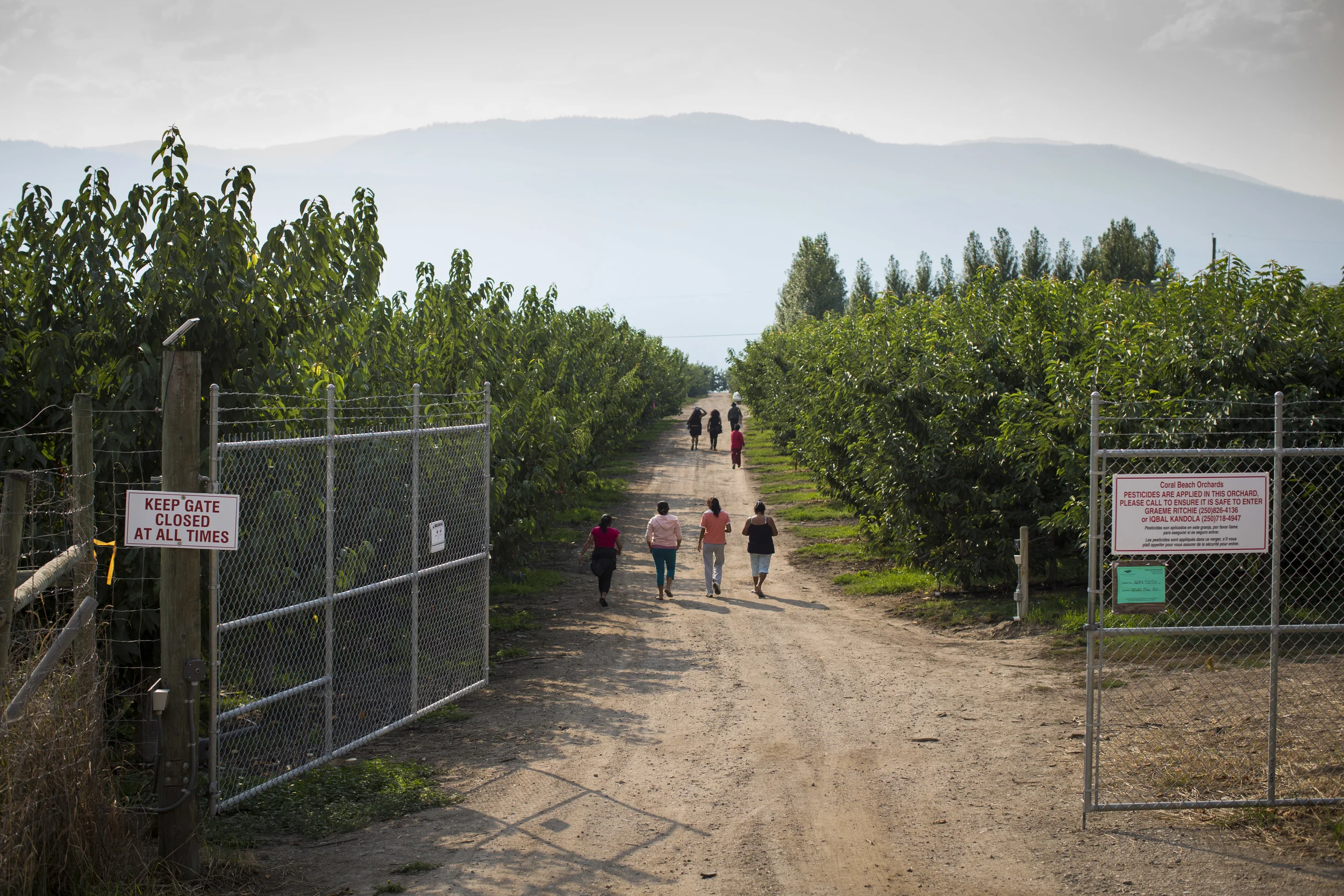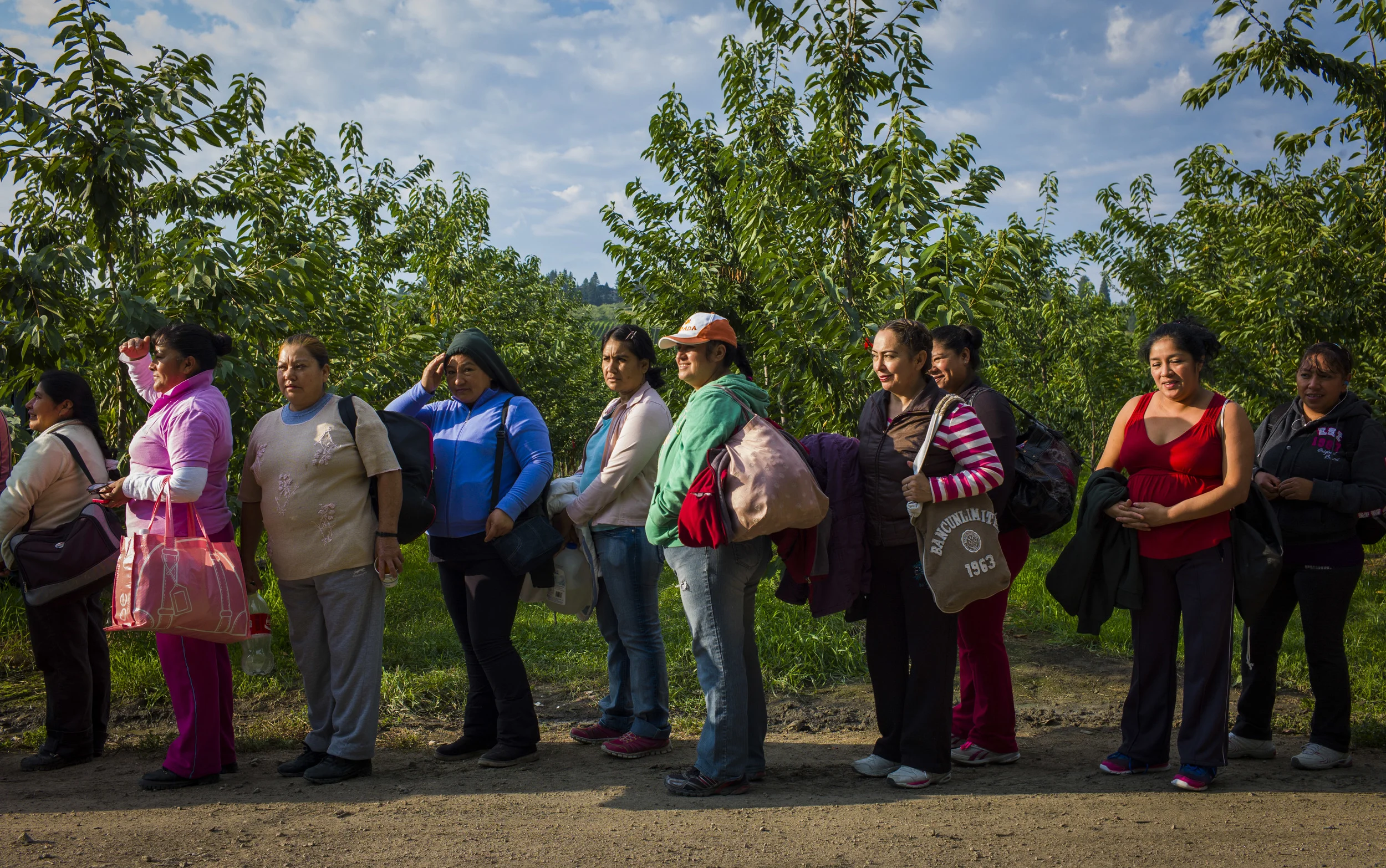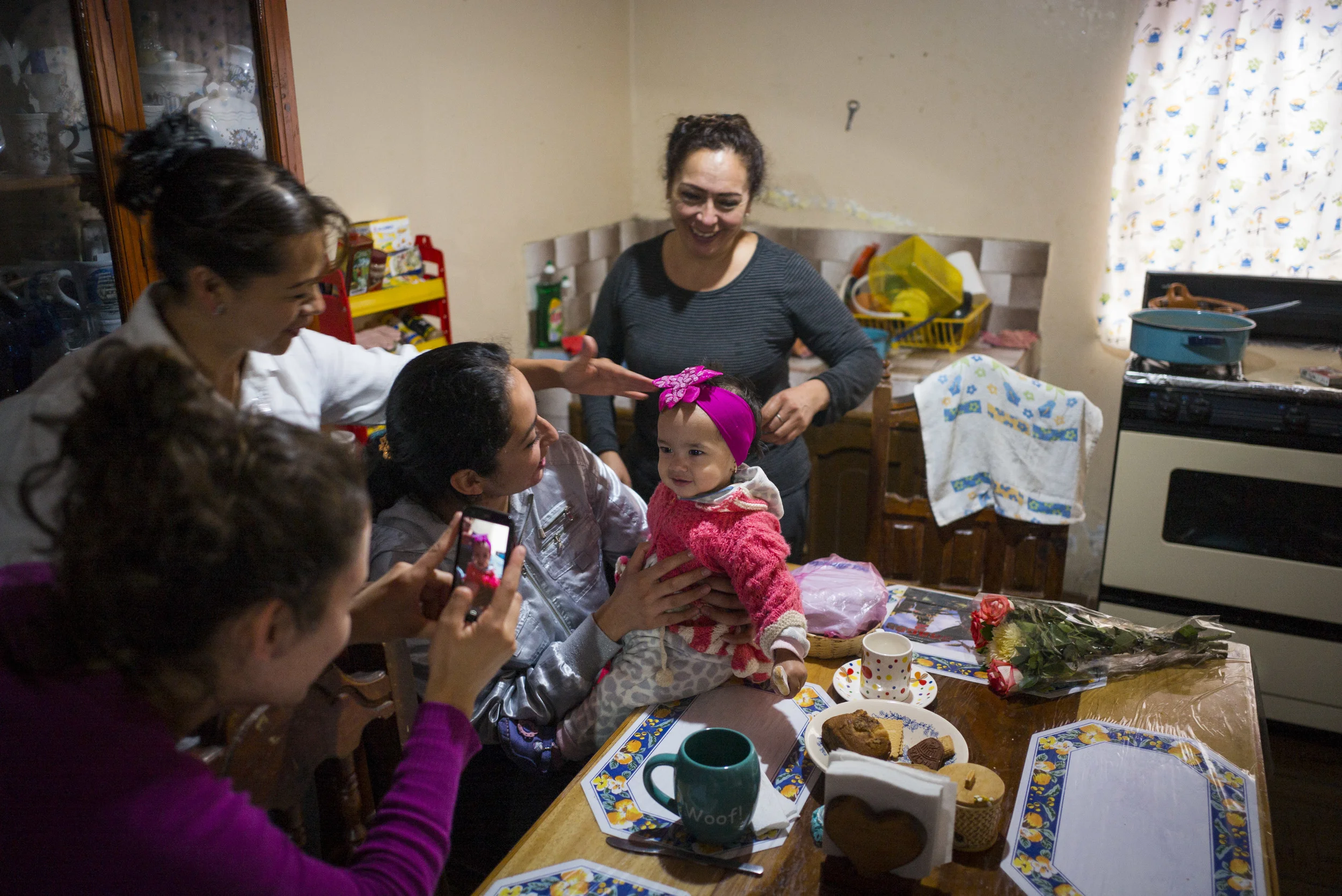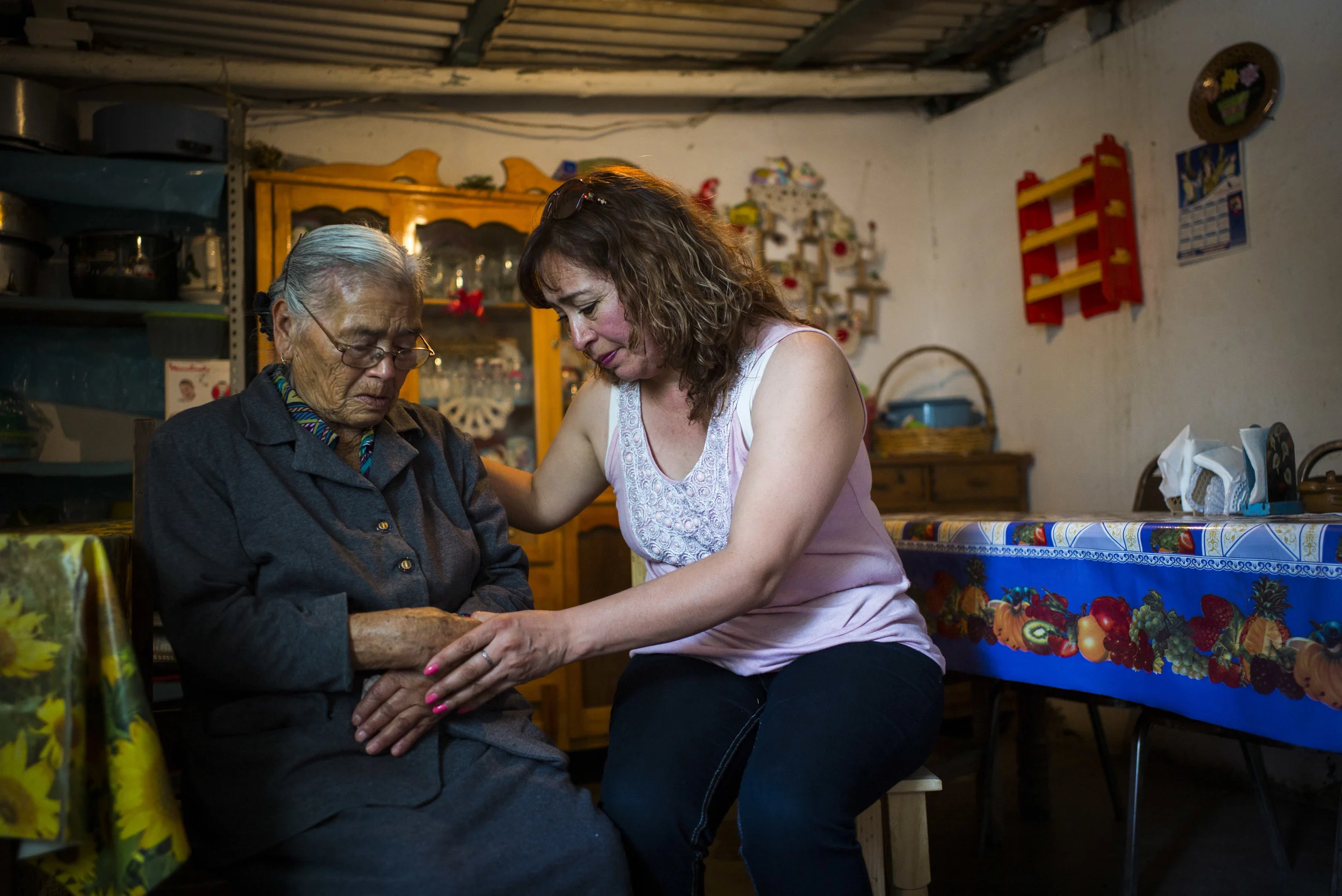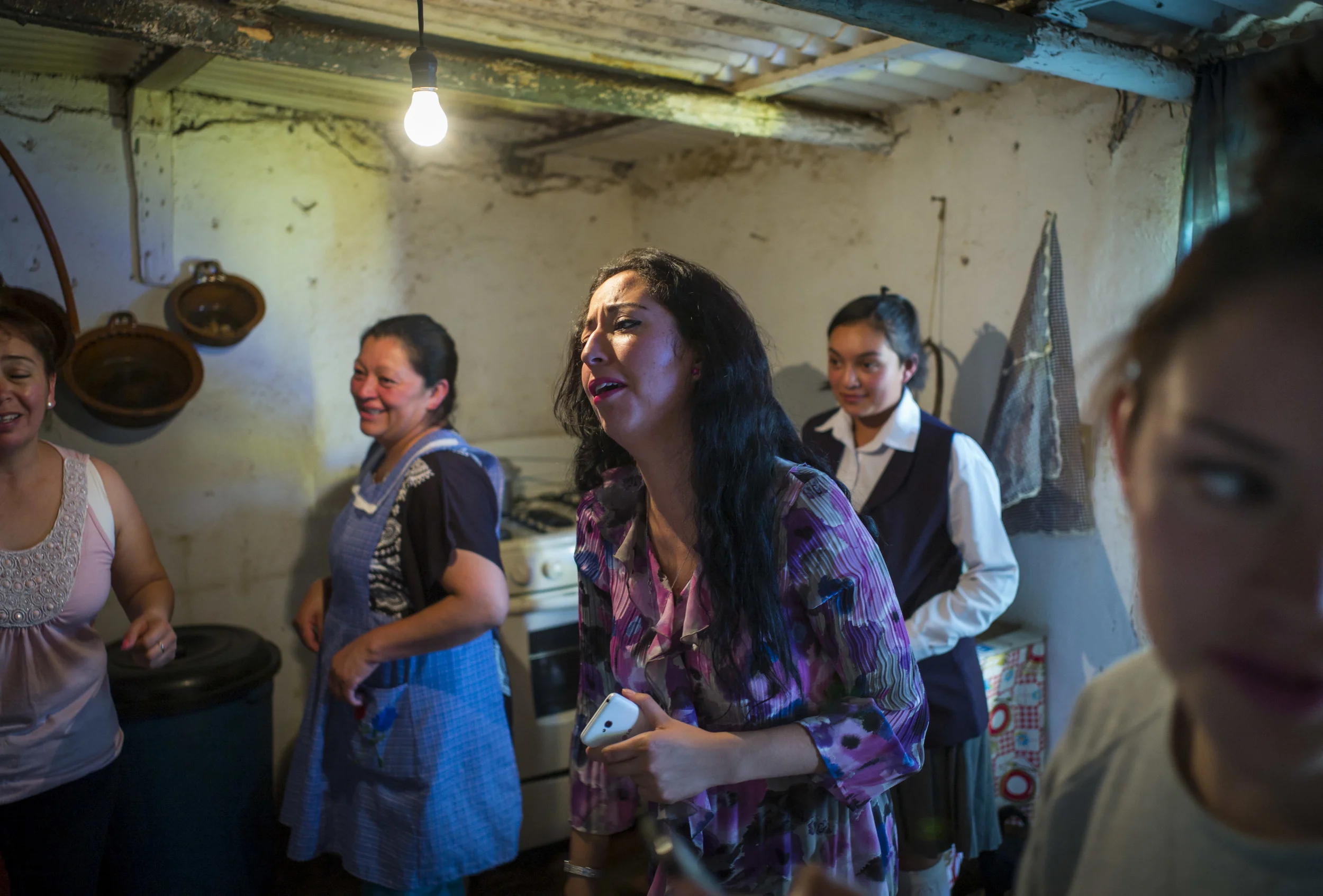TFW
Sometimes, they see cherries in their sleep.
The fruit rolls by on a conveyor belt that keeps moving even in their dreams.
Awake, the women bundle up in jeans and sweaters to take their places in a B.C. fruit-packing plant, where they sort premium cherries destined for sale in Canada and abroad, especially China, where the fruit is sold, jewel-like, gleaming and with stems attached.
The days are long, occasionally stretching to 12 hours or more, and tiring. Feet get numb, arms ache and fingers cramp. Under B.C. employment laws, farm workers are not entitled to overtime pay but are not supposed to work ‘excessive’ hours.
The women are paid $10.30 an hour and are in Canada for five or six weeks – about the length of time it takes for ripe cherries to be picked and packed.
They work for Jealous Fruits, a Kelowna company that has become the biggest cherry producer in Canada by embracing technology and securing a stable workforce.
Sorting-plant jobs used to go mostly to students and itinerant workers. At Jealous Fruits, those jobs now go to Mexican women, who – unlike some other seasonal workers who may leave for any number of reasons, often at short notice – usually can be relied on to stay for the whole season.
For the owner of the company, the Mexican women - along with other foreign workers who help plant, tend and harvest the fruit, comprising nearly 200 foreign workers in all – are essential to run an operation that, at its peak, has a payroll of about 600 people.
